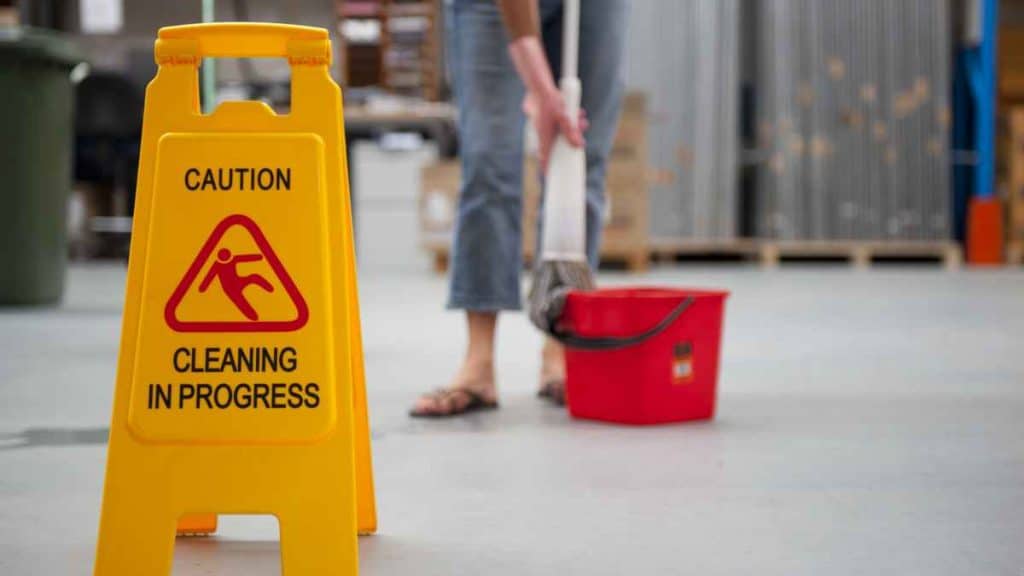Industrial cleaning services play a vital role in maintaining a clean and healthy workplace, but they also present unique health and safety considerations that one must observe.
In addition, the nature of the work often requires workers to operate in confined spaces or at heights, increasing the risk of accidents and injuries.
It is crucial for industrial cleaning service providers to prioritize their workers’ safety and well-being and follow proper procedures and guidelines to minimize the risks associated with the job. Here are some important health and safety considerations to keep in mind:
a) Hazardous Chemicals and Materials
Industrial cleaning services often require using hazardous chemicals and materials such as solvents, acids, and other cleaning agents. These substances can harm human health and the environment if not handled properly.
Workers should receive training on handling these materials safely, including using appropriate personal protective equipment (PPE) such as gloves, respirators, and eye protection.
b) Confined Spaces
Industrial cleaning often involves working in confined spaces such as tanks, vessels, and pipelines. These spaces can be hazardous due to poor ventilation, limited visibility, and the risk of becoming trapped or asphyxiated.
It is crucial to have a proper entry and exit plan, proper ventilation, and continuous monitoring for toxic gases and other hazards. Workers should receive training on confined space entry procedures and use specialized equipment such as gas detectors, harnesses, and retrieval systems.
c) Working at Heights
Many industrial cleaning services require workers to operate at heights, such as cleaning tall machinery or industrial equipment. This work poses a significant risk of falls, which can result in serious injuries or death.
Workers should receive training on properly using fall protection equipment such as harnesses, lanyards, and anchor points. Employers should also provide proper scaffolding or other access equipment to ensure workers can safely perform their duties.
d) Electrical Hazards
Industrial cleaning services often involve working with electrical equipment, which can be hazardous if improperly handled.
Workers should receive training on electrical safety procedures, such as de-energizing equipment, before cleaning and using appropriate PPE, such as rubber gloves and boots.
Employers should also ensure that all equipment is properly grounded and that workers are trained to identify and avoid electrical hazards.
e) Ergonomic Considerations
Industrial cleaning can be physically demanding, requiring workers to lift heavy objects, use repetitive motions, and work in awkward positions. This type of work can lead to musculoskeletal disorders such as back pain, carpal tunnel syndrome, and tendonitis.
Employers should provide ergonomic training to workers and implement measures to minimize the risk of injury, such as using mechanical lifting equipment or rotating tasks to avoid prolonged exposure to repetitive motions.
In Conclusion
Industrial cleaning services require careful consideration of health and safety concerns due to the nature of the work.
Workers should receive proper training, use appropriate PPE and equipment, and follow established procedures to minimize the risk of accidents, injuries, and environmental damage.
Employers must prioritize the health and safety of workers to ensure they can perform that industrial cleaning services effectively and without incident.
